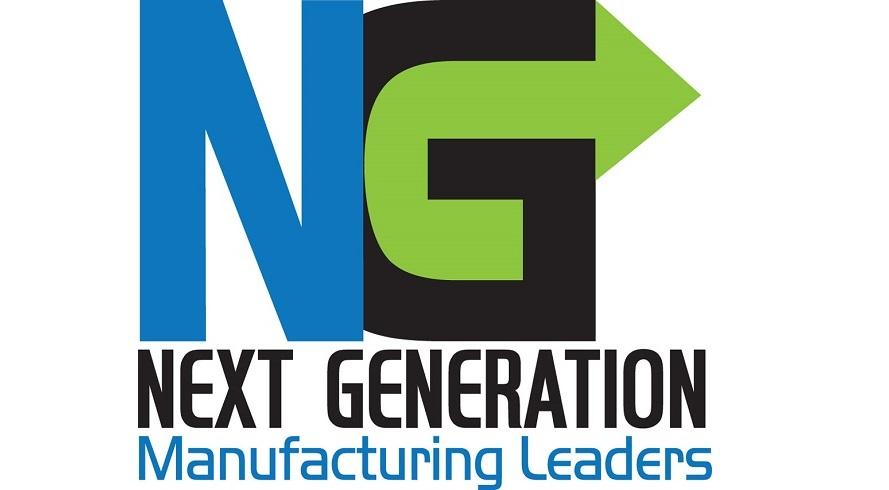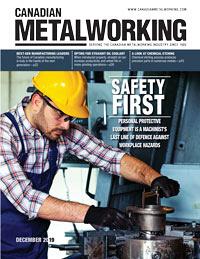Editor
- FMA
- The Fabricator
- FABTECH
- Canadian Metalworking
2019 Next-Gen Manufacturing Leaders
The future of Canadian manufacturing is truly in the hands of the next generation
- By Joe Thompson
- January 8, 2020
- Article
- Metalworking
In an era of changing demographics in which the average age of workers is trending downward, manufacturing needs to face some hard truths. Without an influx of young, skilled workers, the industry will be in trouble.
For the present, the status quo is enough. Manufacturing is very much alive in Canada, where the standard of living is high, workers are highly skilled, and the quality of manufactured goods is remarkable. In short, Made in Canada means something.
To keep this level of excellence, however, we need more skilled and semi-skilled workers for our manufacturing facilities. There is a shortage, but these are not your grandfather’s manufacturing jobs. They are highly paid positions that need employees with problem-solving skills and knowledge gained both in school and on the job so Canada can create some of the most highly advanced parts in the world.
In this issue of Canadian Metalworking we are introducing you to a few of the industry’s next generation of manufacturing leaders who will keep work – and jobs – in Canada.
Curtis QuesnelleWeber Manufacturing Technologies
Midland, Ont.
Like many young workers in the sector, Curtis Quesnelle was first introduced to manufacturing while still in high school through a co-op placement. This led him to Georgian College where he graduated with a diploma in mechanical engineering – tool and die.
Today Quesnelle is a mould designer at Weber Manufacturing Technologies.
“I started at Weber as a mouldmaker apprentice working in a variety of departments,” he said. “These included mouldmaking, polishing, machining, CMM, and the clean room. I then obtained my provincial certification for mouldmaking at the end of my apprenticeship.”
After a few years as a mouldmaker, Quesnelle was promoted to his current role. His duties include both designing moulds and project management.
“Our designers work closely with our customers to design a product that will fill all of their needs as well as support our manufacturing group during the build process. I also help the engineering manager when required,” he explained.
Interestingly, when asked what skill is important in his day-to-day work, Quesnelle points to communication.
“I think one of the most important skills is communication. We manufacture many different styles of moulds and, because of this, objectives and priorities can change from project to project. If you don’t have everyone on the same page, this can create a lot of problems that could have been avoided easily,” he said.
Advanced technology is key for having success in today’s mouldmaking industry. Shops that adopt new technology early often have a head start when that technology becomes mainstream. These days when you talk about novel production technology, it usually starts with additive manufacturing.
“Additive technology is very exciting,” said Quesnelle. “It is changing the way we think about manufacturing and is opening new doors. We do a form of additive technology with our NVD process when we deposit our nickel shells. We are also in the process of investigating metal additive technology to see where it is a good fit for our current manufacturing processes.”
With new processes and challenges lying ahead for the manufacturing sector leadership, particularly youthful leadership will be imperative.
“I think the next generation of leaders will need to be able to evolve much faster than even 20 years ago. Technology, and the way the world works in general, is changing faster than ever before. If you want to be successful, you need to be able to adapt and grow with the times,” said Quesnelle.
Dustin LandonInnovative Mechanical Solutions
Edmonton
Coming out of high school, Dustin Landon had a good work ethic but no real direction for the next stage of his life.
He ended up getting a job at Russel Metals’ plate processing facility where he worked on press brakes, shears, and torch tables. Eventually he was asked if he’d like to try threading water well casing on a manual lathe.
“At that point I had never seen a lathe before and became very interested,” said Landon. “They sent me to SAIT [Southern Alberta Institute of Technology] for a machining fundamentals course, and I was hooked. Seeing the capabilities that came along with knowing how to properly run this equipment piqued my interest and I decided to pursue machining as a career path.”
After graduating, Landon had trouble finding a company that would take him on as an apprentice. It took a family connection before it worked out.
“I told my cousin about my struggle to find an apprenticeship and she gave my name to Mike Louden at Western Pressure Controls. He had a startup operation with two machines and was ready to hire someone to help him. He told me he couldn’t pay much as he was just starting out but was willing to apprentice me. I packed all my belongings in my truck and left Calgary for Edmonton two weeks later,” he said.
It was at this job that Landon really began to add to his skill set.
“Mike gave me enough guidance and trust that I was able to rapidly learn how to run the machines and eventually program G-code. The opportunity Mike gave me drives me to share my knowledge and help grow the careers of anyone who shows the aptitude and interest on a daily basis. That is the true spirit of apprenticeship, and our trade will die without it,” said Landon.
Currently the area manager at Innovative Mechanical Solutions (soon to be rebranded as Engineered Solutions Group), Landon is responsible for a group of six machinists that operate 10 machines with capacities from 1 in. dia. to 24 in. of swing with lengths up to 120 in.
The primary focus of the company is the manufacturing of parts for drilling motors, including its own line of bearings.
“On a day-to-day basis, I will handle everything from programming and helping employees in the shop to communicating with customers and engineering to ensure we are putting out the best-quality product possible in the most efficient way,” he said. “I like the fact that my current role empowers me to innovate and try new things, and I have a great team who is always willing to follow my lead.”
Alberta, unlike many other provinces, is highly dependent on one industry. In this case, it’s oil and gas. Riding the highs and lows of that sector definitely is challenging for every shop.
“Alberta is not in a boom in which shop owners are able to spend money on new and more capable equipment as readily as they have been in the past. Innovation on a day-to-day basis, increasing the capabilities of the shop while adding minimal cost, is what consumes my day and keeps me interested,” he said. “For manufacturing success in this market, I believe we will have to stay flexible, be open to new ideas, always be thinking of ways to improve, and maintain our equipment to the best of our abilities.”
David LangenAFA Systems
Brampton, Ont.
Multi-generational family businesses are the backbone of Canadian manufacturing.
Passion for the business, and for manufacturing, is passed down, creating steady, local jobs while building on long-standing traditions.
David Langen knows all about these traditions.
“The Langen family has a long history in the packaging machinery business,” he explained. “Langen Packaging was established by my grandfather and his brother in 1955. I grew up visiting the factory regularly. I think my first visit to the PMMI packaging show in Chicago was also a big turning point. It showed me the size and scale of the business and really got me addicted to the industry.”
While it was his family’s direct involvement in the industry that initially drew Langen into the manufacturing sector, it was the nature of the business that kept him interested.
“The problems that we are solving at AFA are well defined. Customers typically are seeking to package a product at a specified rate. Project life cycles are relatively short, usually in the 20-week range, so you can see tangible results to your efforts quickly,” he said. “The machines themselves have long life cycles. We are still dealing with customers that have 20- to 30-year-old equipment. It keeps you close to your customers and to the products that you've invested so much of your energy and time in.”
In his role at AFA Systems, Langen focuses on two main areas. First, he is involved in the control and electrical engineering department. This includes electrical schematic design, programming design, and customer service. Second, he has a role in the business information side of the company, which includes designing, deploying, and maintaining the ERP system.
“I have an engineering background that has really helped with the technical aspects of the business,” explained Langen. “I'm very interested in solving problems, and having a technical background gives me more tools to help solve them.”
As in most family-run businesses, it’s not just family members who tend to stay with the company for a long time. Other staff members are dedicated and feel a sense of ownership as well.
“Many of the people that worked at AFA when I started are still here. I've learned a tremendous amount from them,” said Langen. “Coming from a family that is steeped in the packaging machinery industry also has been a source of support and wisdom.”
Having the tribal knowledge that comes with a multi-generational business makes dealing with the unexpected a little easier to handle. However, it still comes down to making the correct decisions.
“Unexpected circumstances will always come up in this business. In manufacturing, problems need to be solved quickly and correctly. Knowing that I, and the company we've built, can come up with these solutions is the biggest [asset]. As I've taken on more responsibility, the most important skill I've learned is the ability to prioritize. You can get easily bogged down in issues that don't need to be dealt with right away,” said Langen.
In a business that has been around since the ’50s, a lot has changed. In this new age of manufacturing it’s important to grow and adapt to new technologies.
“We firmly believe that to grow the business we need to have a broad product offering,” said Langen. “Currently we are working on the development of a new case erector model that is capable of high speeds and quick changeovers.”
This type of development requires commitment and experience to be implemented properly. It’s something that a company that has been around for six decades typically does well. It’s not without its challenges, however, especially as the industry becomes more digitalized.
“Networking technologies are improving in both scale and speed at a rapid pace. This will provide an opportunity to collect a massive amount of data,” said Langen. “Understanding this data and using it productively will be an important problem that will have to be thought through.”
So what does it take to keep a manufacturing business operating successfully for three generations? That’s easy, according to Langen.
“You need to be hard-working, clear-minded, and confident. What has changed recently is the huge number of technologies out there that can help you to be successful. Having an understanding of what is available is critical,” he said.
About the Author

Joe Thompson
416-1154 Warden Avenue
Toronto, M1R 0A1 Canada
905-315-8226
Joe Thompson has been covering the Canadian manufacturing sector for more than two decades. He is responsible for the day-to-day editorial direction of the magazine, providing a uniquely Canadian look at the world of metal manufacturing.
An award-winning writer and graduate of the Sheridan College journalism program, he has published articles worldwide in a variety of industries, including manufacturing, pharmaceutical, medical, infrastructure, and entertainment.
subscribe now


Keep up to date with the latest news, events, and technology for all things metal from our pair of monthly magazines written specifically for Canadian manufacturers!
Start Your Free Subscription- Trending Articles
Automating additive manufacturing

Sustainability Analyzer Tool helps users measure and reduce carbon footprint

GF Machining Solutions names managing director and head of market region North and Central Americas

Mitutoyo updates its end-user portal

Enhance surface finish with high-speed machining

- Industry Events
CTMA Economic Uncertainty: Helping You Navigate Kitchener Seminar
- May 2, 2024
- Kitchener, ON Canada
Automate 2024
- May 6 - 9, 2024
- Chicago, IL
ANCA Open House
- May 7 - 8, 2024
- Wixom, MI
17th annual Joint Open House
- May 8 - 9, 2024
- Oakville and Mississauga, ON Canada
MME Saskatoon
- May 28, 2024
- Saskatoon, SK Canada



















